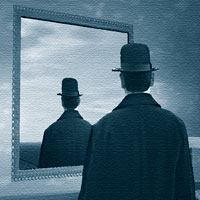Child Genius

The headmistress at the Barrowford primary school in Lancashire recently sent all of her children an encouraging letter after their Key Stage 2 tests. She reminded her children that although the tests were important, and that they should be proud of their results, they could never be used to test or judge a whole person. She reminded them that the tests didn’t show that they were a caring sibling or that they did their very best.
We need teachers like this. You only have to watch Child Genius on Channel 4 to find out why.
The programme follows a group of talented children who undergo a battery of tests to find Britain’s brightest child. For over an hour, the programme seemed to staple my eyelids to my forehead. But when a 12-year-old girl broke down, her red cheeks running with tears, it was as if someone had broken the spell. Up until then the programme had been full of anxious children trying to spell words like ‘haemorrhoid’ and ‘septuagenarian’ but now there was real distress on display.
We’re putting wannabe doctors under the same pressure. Recently one medical student told me that the admission criteria to win a place at medical school is now nine A* passes at GCSE and three grade A passes at A-level. You also have to excel in extra-curricular activities like playing the guitar, volunteering for the MSF and running a nursing home in your spare time.
The student in question was already compiling a portfolio and a CV and asked if I had any tips because he was desperate to get something published, perhaps in The Lancet, as it would mean he could really get his foot on the ladder.
He was in his first year and I was slackjawed with incredulity. When I was in my first year, I didn’t want a portfolio and I didn’t want to get published in The Lancet either. All I wanted was to look like Kurt Cobain, and I never did manage that.
But what struck me most was how frightened my student was of getting an answer wrong. I asked him why a patient would benefit from putting GTN ointment up his bum and he mumbled something about angina. He didn’t think about haemorrhoids, and although I congratulated him on his lateral thinking, his red cheeks reminded of the child from Child Genius, fighting back her tears on the podium. He wasn’t prepared to get anything wrong – nothing at all – and I felt like the pushy parent, tut-tutting on the sidelines.
Without the intellectual freedom to make mistakes, you kill creativity stone dead. The freedom to chance your arm has been amputated by our obsession with tests and right answers.
A medical registrar I once worked with spent the entire two weeks of his annual leave in the doctors’ mess learning the contents of the BNF. He did it so that his consultant wouldn’t shout at him again, so that his consultant, who he loved and feared in equal measure, would love him back. I called him a prize twat and suggested that if he really wanted to be loved he should learn how to play the guitar, we’ve been good friends ever since. He plays the guitar, he’s married and he almost became Kurt Cobain.
My registrar found a way out of his own cul-de-sac of fear. But when you have individuals with less insight than him, cowed and terrified by the threat of litigation and patient complaint, is it any wonder that the institution which they collectively make-up also has the same qualities? As I sat watching Child Genius, I asked myself how clever you have to be to study medicine. Not this clever, surely? A few doctors I know, and plenty of those that I don’t, can’t even spell haemorrhoid.
The NHS has lost its compassion. It’s fearful and unimaginative, and sweats under the spotlight like a child at a spelling bee.
Dr Kevin Hinkley is a GP in Aberdeen.









